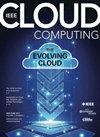Event-Driven Approach for Monitoring and Orchestration of Cloud and Edge-Enabled IoT Systems
Q1 Computer Science
引用次数: 1
Abstract
The Internet of Things (IoT) has greatly benefited the technological advances of a variety of fields, such as manufacturing and medicine, to name a few. The context surrounding these use cases is, however, often widely different from conventional Cloud Computing and web applications. Cyberphysical environments present us with major concerns and constraints surrounding the resilience of systems, which often rely on critical infrastructure and important workloads to prevent major losses for businesses or even the endangerment of individuals. The supervision of these infrastructures, outside the controlled and relatively safe environment of a datacenter, is therefore one of the major considerations for modern IoT systems. In this paper, we evaluate the core concepts around this thesis and propose an architectural and conceptual approach to improve the monitoring, scalability, and orchestration of IoT systems. We leverage and integrate different solutions inspired by modern IoT practices and the cloud ecosystem to optimize both software and hardware aspects. The solution revolves around an Edge Computing approach, Event-driven communication (MQTT) in the Edge, the orchestration of containerized services using Ku-bernetes and KubeEdge, and Device Twins for the management of physical components. Through development, experiment, and evaluation, we propose an architecture and two complementary fault-tolerance strategies to address synchronization between cloud and edge components and improve the overall resilience of the system.用于云和边缘启用物联网系统监控和编排的事件驱动方法
物联网(IoT)极大地促进了制造业和医药等多个领域的技术进步。然而,围绕这些用例的上下文通常与传统的云计算和web应用程序大不相同。网络物理环境向我们提出了围绕系统弹性的主要担忧和限制,这些系统通常依赖于关键基础设施和重要工作负载,以防止企业遭受重大损失,甚至危及个人。因此,在数据中心的受控和相对安全的环境之外,对这些基础设施的监督是现代物联网系统的主要考虑因素之一。在本文中,我们评估了围绕本文的核心概念,并提出了一种架构和概念方法来改进物联网系统的监控、可扩展性和编排。我们利用并整合受现代物联网实践和云生态系统启发的不同解决方案,以优化软件和硬件方面。该解决方案围绕边缘计算方法、边缘中的事件驱动通信(MQTT)、使用kubenetes和KubeEdge的容器化服务编排以及用于管理物理组件的Device Twins展开。通过开发、实验和评估,我们提出了一种架构和两种互补的容错策略,以解决云和边缘组件之间的同步问题,并提高系统的整体弹性。
本文章由计算机程序翻译,如有差异,请以英文原文为准。
求助全文
约1分钟内获得全文
求助全文
来源期刊

IEEE Cloud Computing
Computer Science-Computer Networks and Communications
CiteScore
11.20
自引率
0.00%
发文量
0
期刊介绍:
Cessation.
IEEE Cloud Computing is committed to the timely publication of peer-reviewed articles that provide innovative research ideas, applications results, and case studies in all areas of cloud computing. Topics relating to novel theory, algorithms, performance analyses and applications of techniques are covered. More specifically: Cloud software, Cloud security, Trade-offs between privacy and utility of cloud, Cloud in the business environment, Cloud economics, Cloud governance, Migrating to the cloud, Cloud standards, Development tools, Backup and recovery, Interoperability, Applications management, Data analytics, Communications protocols, Mobile cloud, Private clouds, Liability issues for data loss on clouds, Data integration, Big data, Cloud education, Cloud skill sets, Cloud energy consumption, The architecture of cloud computing, Applications in commerce, education, and industry, Infrastructure as a Service (IaaS), Platform as a Service (PaaS), Software as a Service (SaaS), Business Process as a Service (BPaaS)
 求助内容:
求助内容: 应助结果提醒方式:
应助结果提醒方式:


